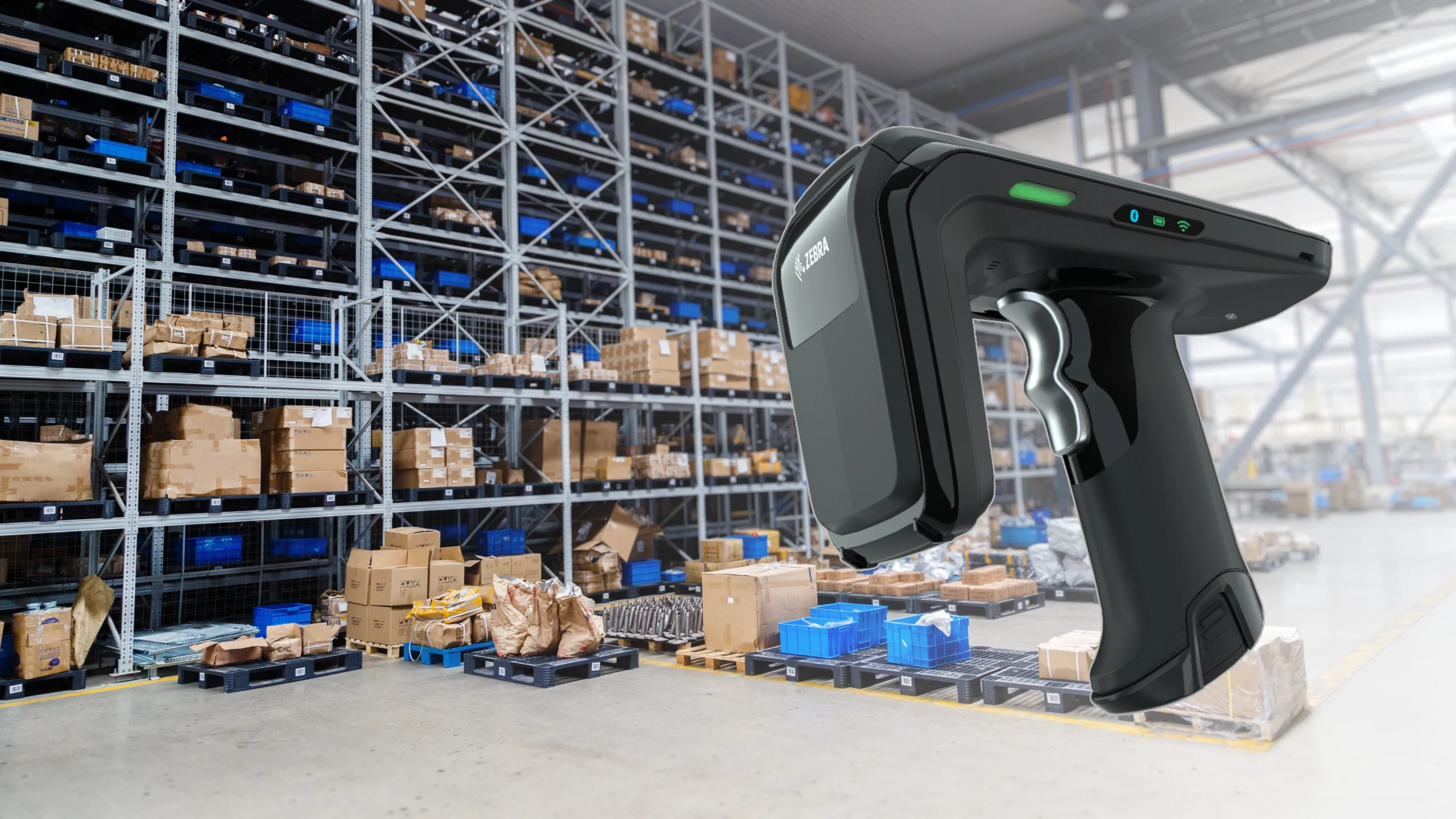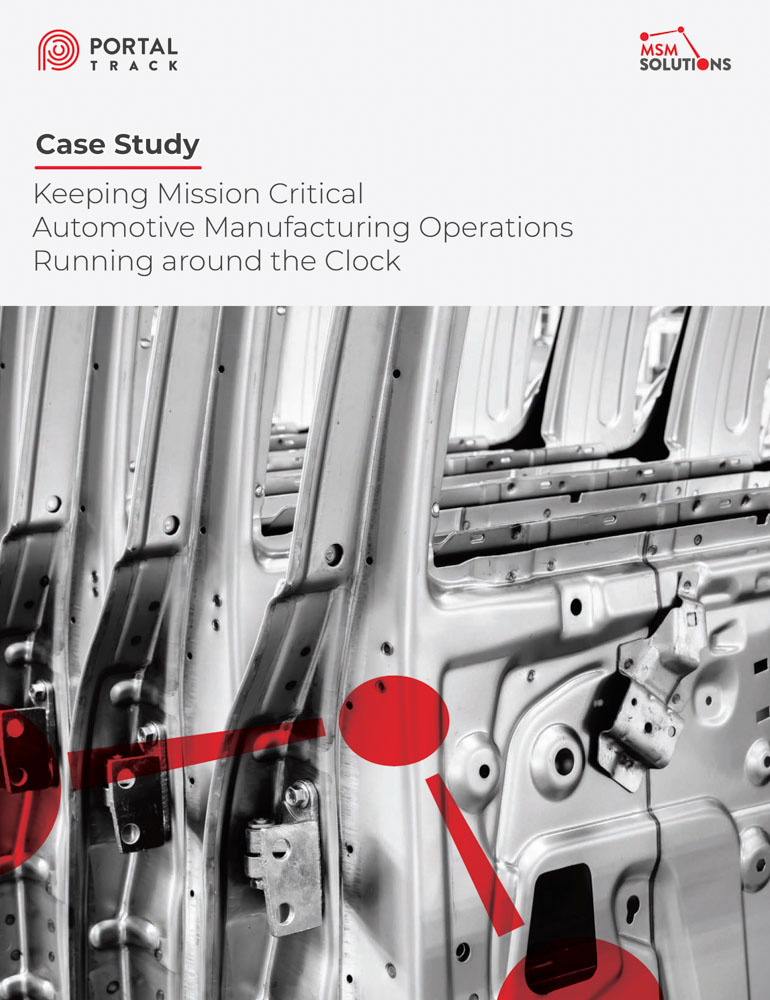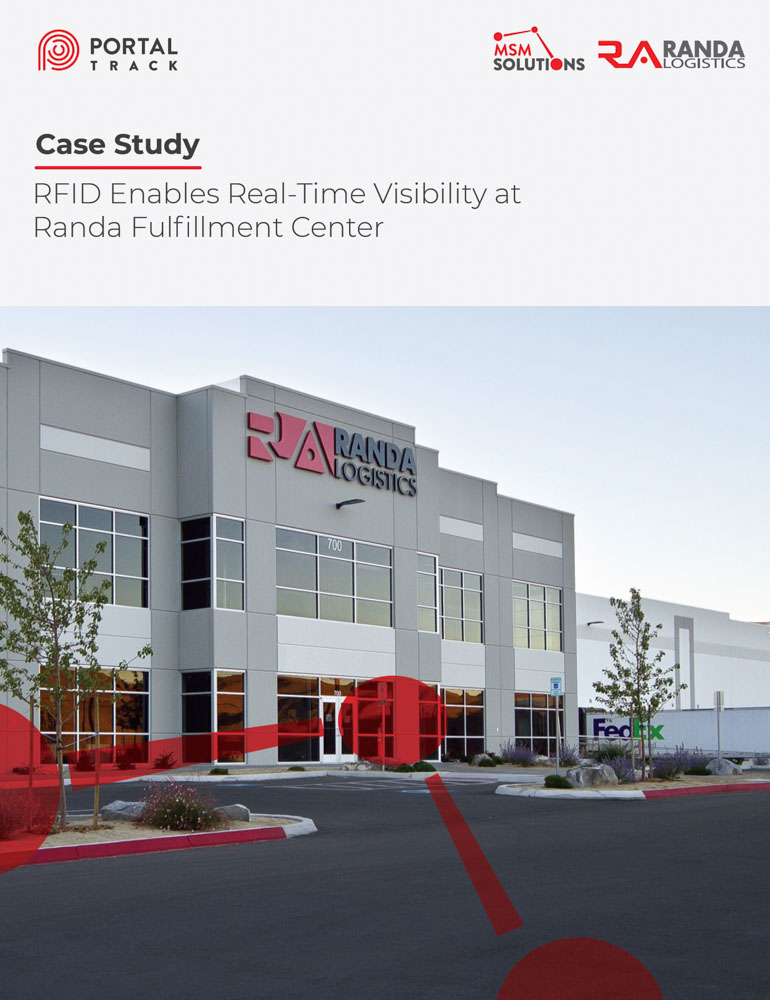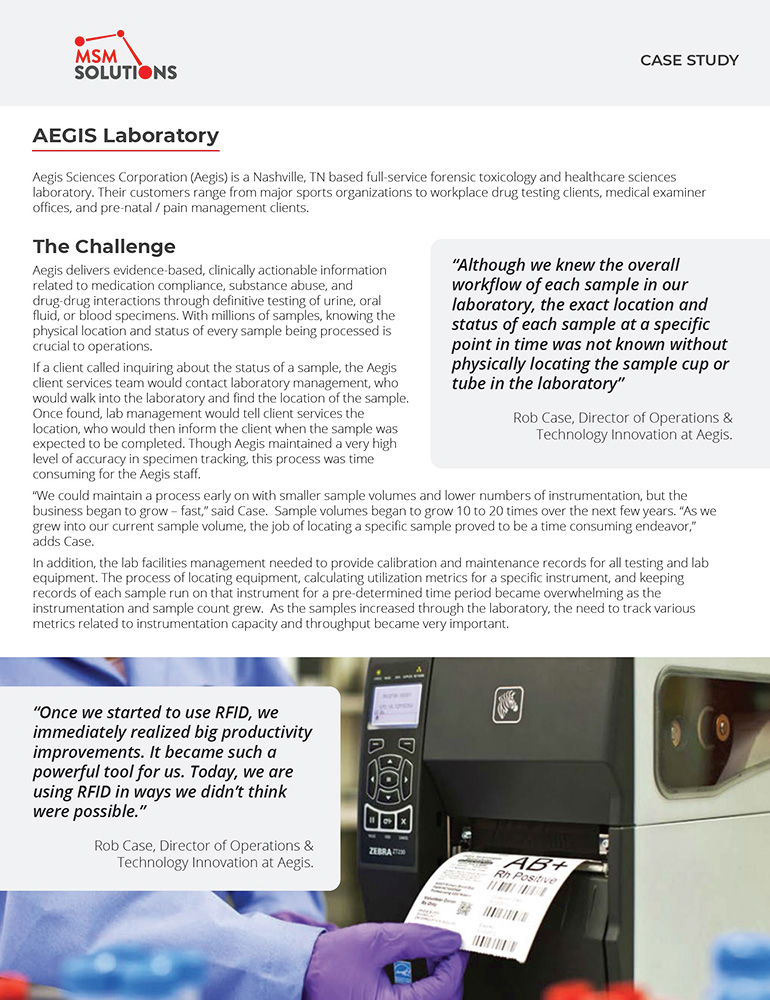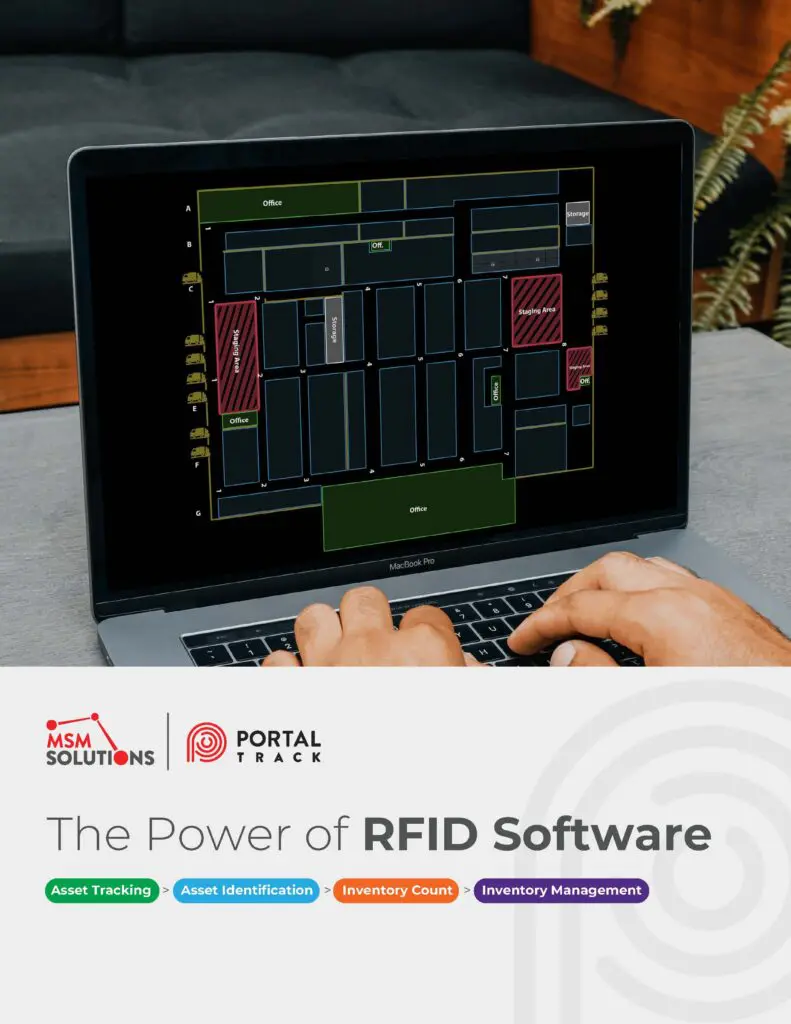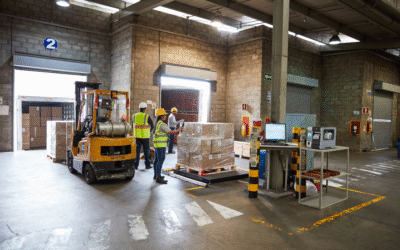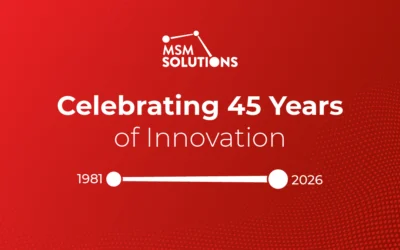When businesses consider implementing an RFID system, the immediate question often revolves around RFID costs. However, focusing solely on the financial outlay can obscure an even more critical consideration: the cost of not adopting RFID technology.
What Is the cost of RFID?
RFID systems can range from $5,000 to over $250,000, depending on business size, complexity, and goals. From warehouse visibility to retail automation, RFID helps reduce inefficiencies and improve ROI.But there’s another cost that’s often overlooked: what you’re losing by waiting. This article breaks down RFID pricing by component and explores why delaying implementation could cost your business more in the long run.
Understanding the Costs of RFID Systems
RFID (Radio Frequency Identification) is a technology that enhances asset tracking and inventory management. The costs associated with RFID implementation can be divided into:
- Hardware Costs

- Passive RFID tags: $0.04–$0.08 each, depending on volume and material
- Active RFID tags: $15–$50 or more per tag for specialized functionalities
- RFID readers: $1,500–$3,000 for handheld devices; $2,500–$5,000 for fixed scanners
- Antennas, printers, and supporting equipment further add to the expense
- Software Costs
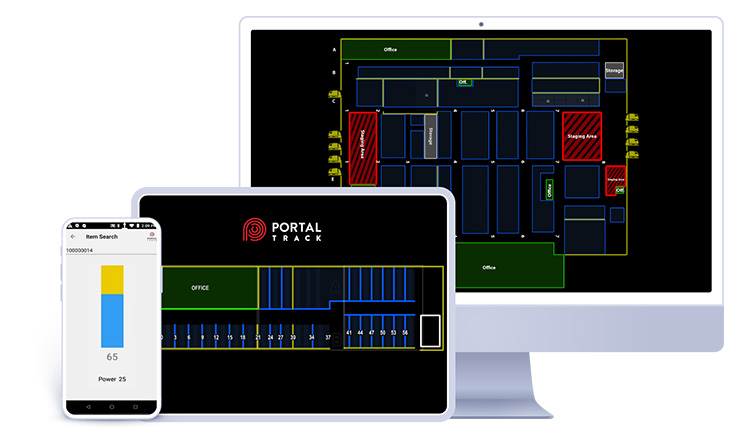
- RFID systems require asset management software. Solutions range from basic tag-reading programs to advanced ERP integrations, with costs varying between $1,000 to several hundred thousand dollars, depending on features.
- Installation and Maintenance
- Initial installation costs for passive systems can be substantial due to the need for expert calibration. However, fees are reasonable and oftentimes can be done by company maintenance. Active systems can be more complex and may cost more to set up.
- Regular maintenance ensures optimal performance but adds ongoing costs (Although passive systems are typically low maintenance.).
- Ongoing Expenses: These include battery replacements (for active tags) and monthly, semi- annual or annual support.
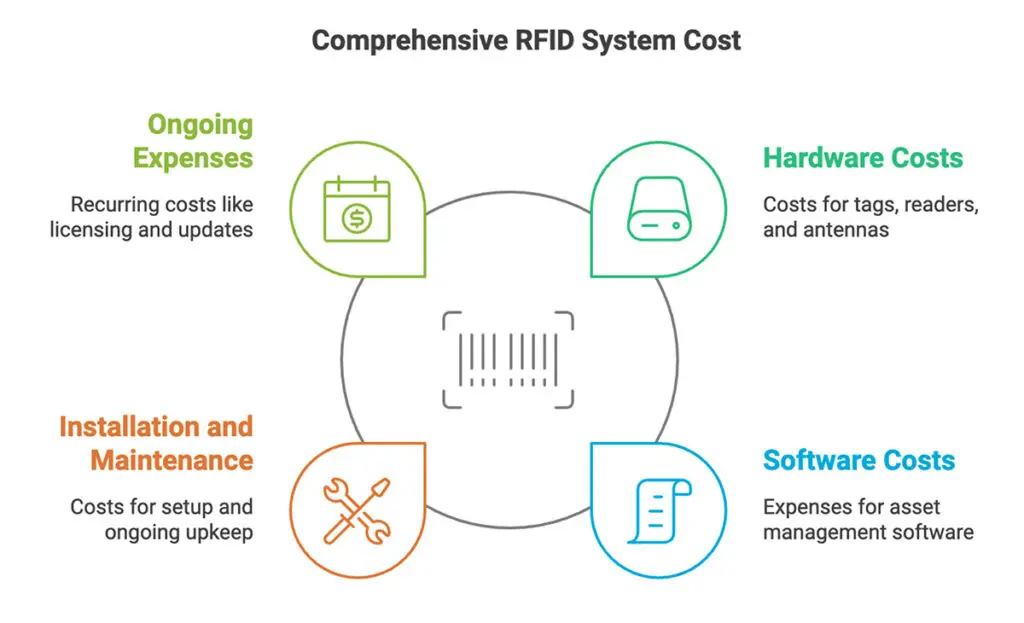
RFID Cost Table: What You Can Expect by Use Case
While RFID system costs vary depending on the size and scope of the project, the following estimates give you a clearer idea of what to expect based on common business use cases. From basic asset tracking to enterprise-level supply chain visibility, this breakdown highlights typical components and pricing ranges to help you evaluate your investment more effectively.
Estimated RFID System Cost by Use Case
| Use Case | Estimated Cost Range | Typical Components |
|---|---|---|
| Asset Tracking | $5,000 – $25,000 | RFID tags, handheld readers, PortalTrack software |
| Inventory Management | $15,000 – $75,000 | RFID labels, fixed readers, integration |
| Supply Chain Visibility | $50,000 – $250,000+ | Portals, antennas, enterprise software, middleware |
| Item-Level Retail Tracking | $25,000 – $100,000 | Smart labels, mobile readers, integration w/ POS |
Note: Pricing varies based on scale, environment, and tagging volume. MSM Solutions provides customized quotes based on your specific needs.
RFID vs. Barcode: Choosing the Right Tool for the Job
While RFID offers advanced automation and real-time tracking, barcode systems still serve many industries reliably and cost-effectively. The key isn’t choosing one over the other—it’s understanding which is better suited for your workflow, scale, and goals. Here’s how RFID and barcode systems compare across key performance and cost factors.
RFID vs. Barcode Comparison Table
| Factor | Barcode | RFID |
|---|---|---|
| Cost per Tag | $0.01 – $0.05 | $0.04 – $0.08 (passive) • $15 – $50+ (active) |
| Line-of-Sight Needed | Yes | No |
| Scan Speed | Manual, one-by-one | Bulk scans in real time |
| Automation Capability | Limited (manual/semi-automated) | High (automated, hands-free tracking) |
| Durability | Paper or label-based (limited life) | Long-lasting; specialized tags available for harsh settings |
| Ideal Use Cases | Low-cost tracking, small SKU volume | High-speed, high-volume, or real-time operations |
The Hidden Cost of Doing Nothing
While businesses often hesitate at the upfront investment required for RFID, failing to act introduces significant risks and expenses:
- Inaccurate Inventory Management
- Manual tracking or outdated barcode systems often result in inventory errors. These inaccuracies can lead to:
- Overproduction or stockouts.
- Higher holding costs due to excess inventory.
- Manual tracking or outdated barcode systems often result in inventory errors. These inaccuracies can lead to:
- Lost Revenue Opportunities
- Without real-time visibility, businesses miss opportunities to fulfill customer demand efficiently, resulting in delayed shipments or lost sales.
- Without real-time visibility, businesses miss opportunities to fulfill customer demand efficiently, resulting in delayed shipments or lost sales.
- Inefficiencies in Operations
- Time spent searching for misplaced items or correcting shipment errors impacts productivity. RFID’s ability to read hundreds of tags per second—without requiring a line of sight—can eliminate these inefficiencies.
- Compliance and Reporting Errors
- Industries like healthcare and logistics require precise record-keeping for regulatory compliance. RFID ensures accurate tracking and reporting, avoiding penalties.
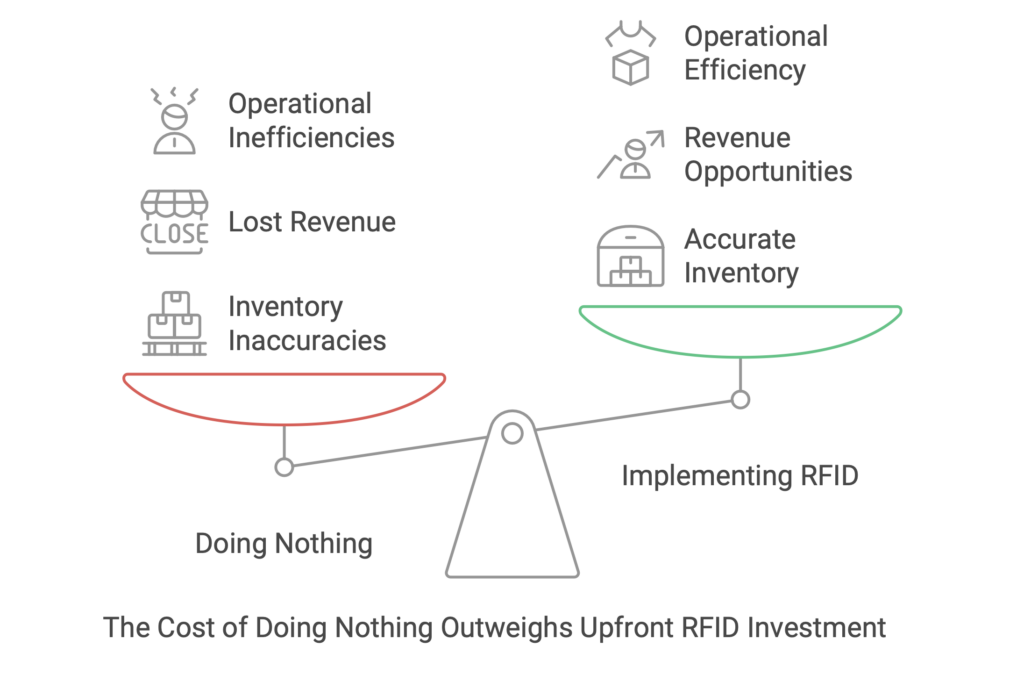
Real-World Results of RFID Investment
Across industries—from manufacturing to retail to healthcare—businesses already see measurable benefits from RFID. Compared to the hidden cost of inaction, the results speak for themselves. Here’s how RFID is delivering a return on investment in real-world deployments.
What RFID Costs by Business Size or Deployment Type
Now that you’ve seen how RFID can drive measurable returns, here’s a look at estimated system costs based on deployment scale. These ranges cover typical setups—from small pilots to enterprise-wide solutions—and include hardware, software, installation, and support.
Estimated Total RFID System Costs by Deployment
| Deployment Type | Estimated Total Cost | What It Typically Includes |
|---|---|---|
| Small-Scale / Pilot | $5,000 – $15,000 | Handheld readers, passive tags, basic software |
| Mid-Sized Operation | $20,000 – $50,000 | Fixed readers, antennas, software integration, setup services |
| Enterprise-Level | $100,000+ | Full facility coverage, portals, ERP/WMS integration, support |
Return on Investment: Why RFID Pays Off
The costs of an RFID implementation should be viewed as an investment with measurable ROI. Companies that adopt RFID systems see benefits such as:
- Increased Inventory Accuracy: RFID provides nearly 99% accuracy in inventory tracking, reducing errors and ensuring products are available when needed.
- Improved Labor Efficiency: By automating inventory scans and eliminating manual checks, businesses save time and resources.
- Better Customer Satisfaction: Accurate inventory ensures timely deliveries, boosting brand loyalty.
Case studies show that companies often recover their initial investment within two years due to operational savings and increased sales.
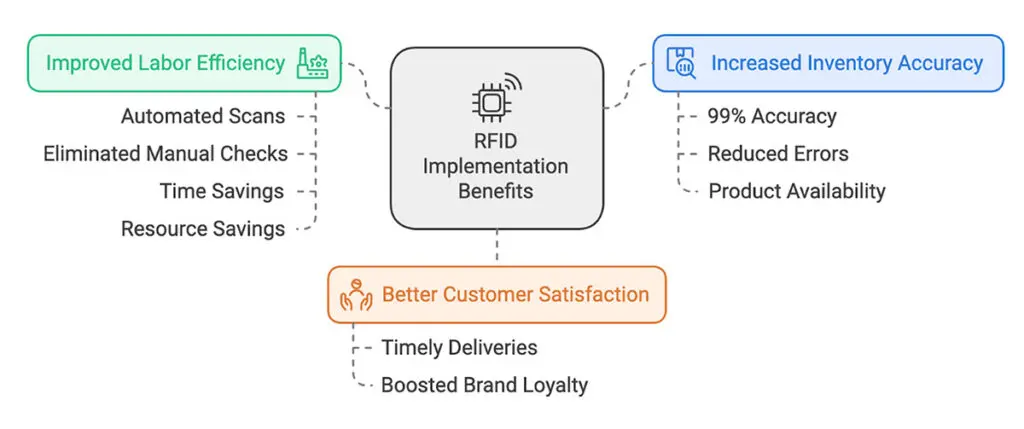
Why Invest Now?
The hesitation to invest in RFID often stems from concerns over budget, ongoing projects, or fear of change. However, delaying implementation only compounds inefficiencies and increases long-term costs.
For example, if your company spends $100,000 implementing RFID today but doubles its savings within one to three years, isn’t that a smarter decision than continuing to lose money through inefficiencies and errors?
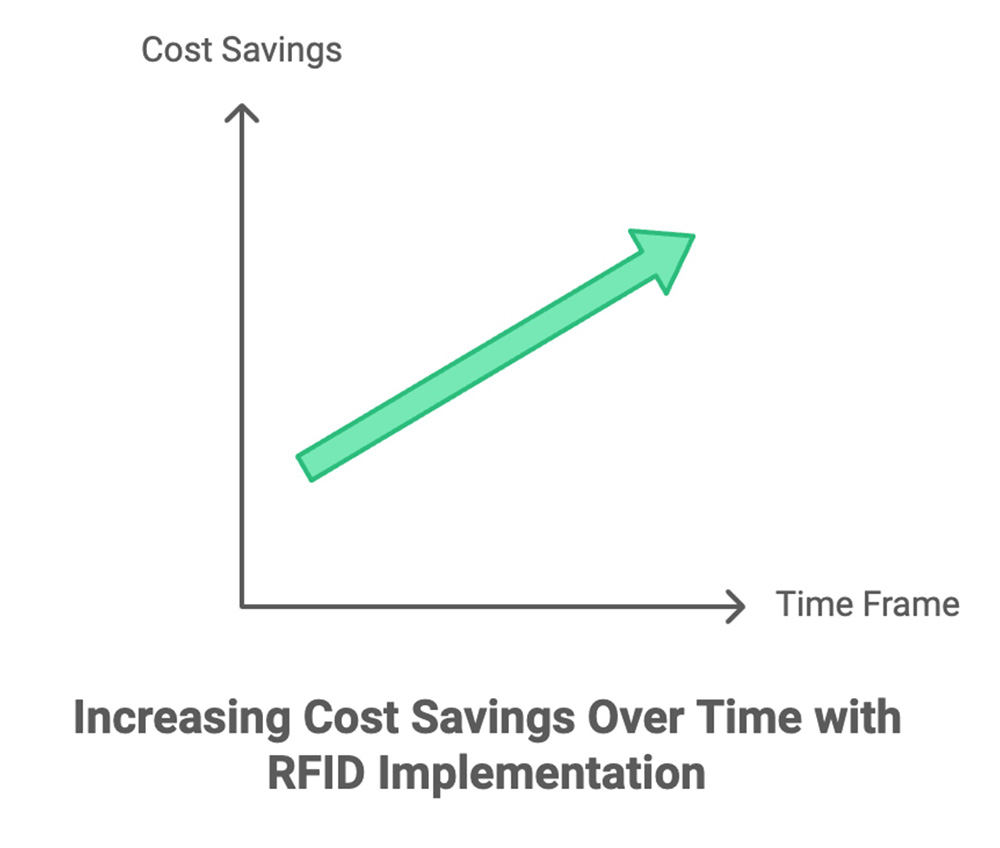
Conclusion
The RFID cost isn’t just about dollars spent on tags, readers, and software—it’s about ensuring your business remains competitive in a fast-moving world. The cost of doing nothing can far outweigh the initial investment, impacting everything from revenue to customer satisfaction.
Take the first step toward smarter operations today. MSM Solutions not only specializes in cost-effective RFID implementations but also offers PortalTrack, a customizable software platform that integrates seamlessly with your operations. With PortalTrack, you gain real-time visibility into assets, inventory, and processes, delivering maximum ROI and ensuring your business stays ahead of the curve. Contact our RFID experts today.
